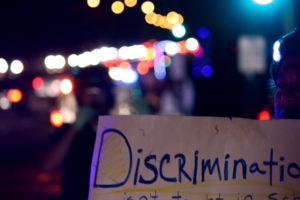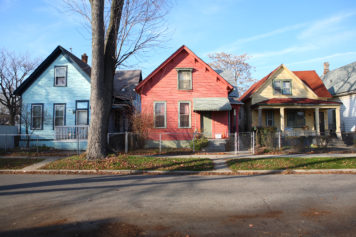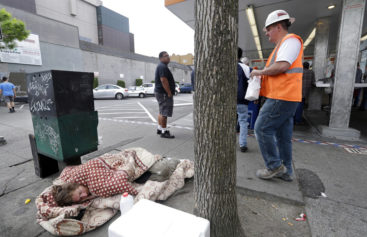
Flicker
The Department of Housing and Urban Development has established a new set of guidelines to prevent discrimination against those with criminal backgrounds.
The National Low-Income Housing Coalition Policy Forum was held Monday in Washington D.C. HUD announced it seeks to prevent landlords and home sellers from favoring those who have a clean criminal record over those who do not. This is based on the disproportionate amount of past offenders who are minorities – Blacks and Latinos.
“No American should ever be discriminated against because of their race or ethnicity, even if that discrimination results from a policy that appears neutral on its face,” HUD Secretary Julián Castro said during the forum. “Black and Latino Americans are unfairly arrested at significantly higher rates than white Americans.”
NBC News reports HUD’s new guidelines follow a Supreme Court ruling last year that prevented the scope of the Fair Housing Act from being narrowed. It was ruled that interpretation of housing discrimination cases should be based on the different impact they will have on minorities. Under HUD’s new rules, landlords will have to carefully examine if a potential resident was arrested and also convicted. If they were convicted, property owners have to consider the severity and type of the crime and conviction regarding a housing application. If they do not, the homeowner could be investigated for discrimination and civil penalties.
The Fair Housing Act does not protect criminals. The new rules outlined by HUD ensure landlords will need to prove a past offender was turned away from their property because they pose a threat.
“When landlords summarily refuse to rent to anyone who has an arrest record, they may effectively and disproportionately bar the door to millions of folks of color for no good reason at all,” Castro said at the housing forum.
According to National Public Radio, one in four Americans has a criminal record. And those records can include arrests that never led to convictions. They also range in seriousness and could have occurred decades ago.
Melvin Lofton tried to rent a place in a trailer park and was turned away. He tells NPR he was “at work and the guy called me and told me to come pick up my keys. So then … 45 to 50 minutes later he calls and says, ‘Is there something you’re not telling me?’ and I say, ‘No, what is there?’ And he says, ‘You didn’t tell me you had a background.’ ”
Lofton’s background is that he was convicted of burglary and theft when he was in his 20s. At the time, the 51-year-old had been out of prison for 20 years.
The new guidance in place by HUD seeks to limit this type of housing discrimination.


